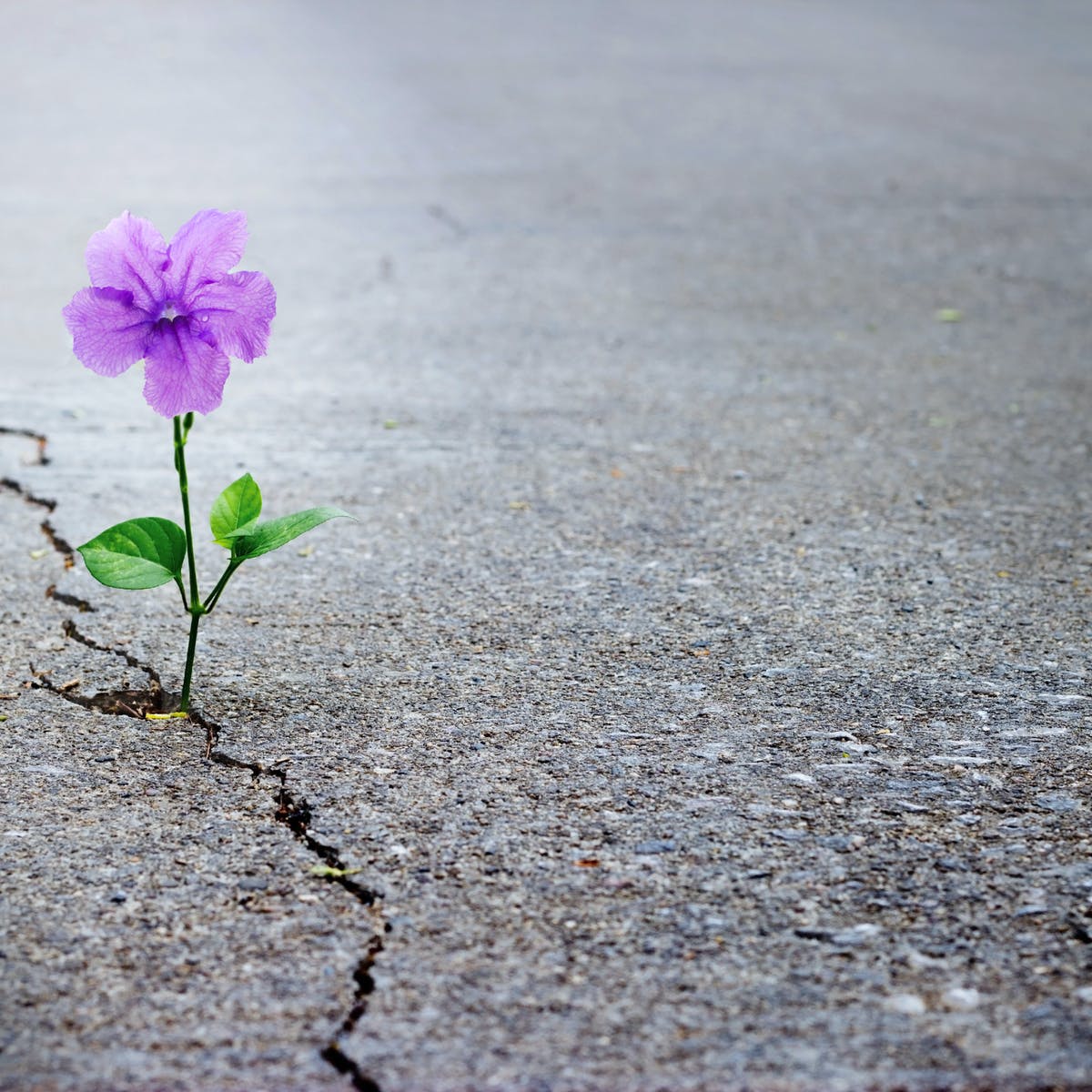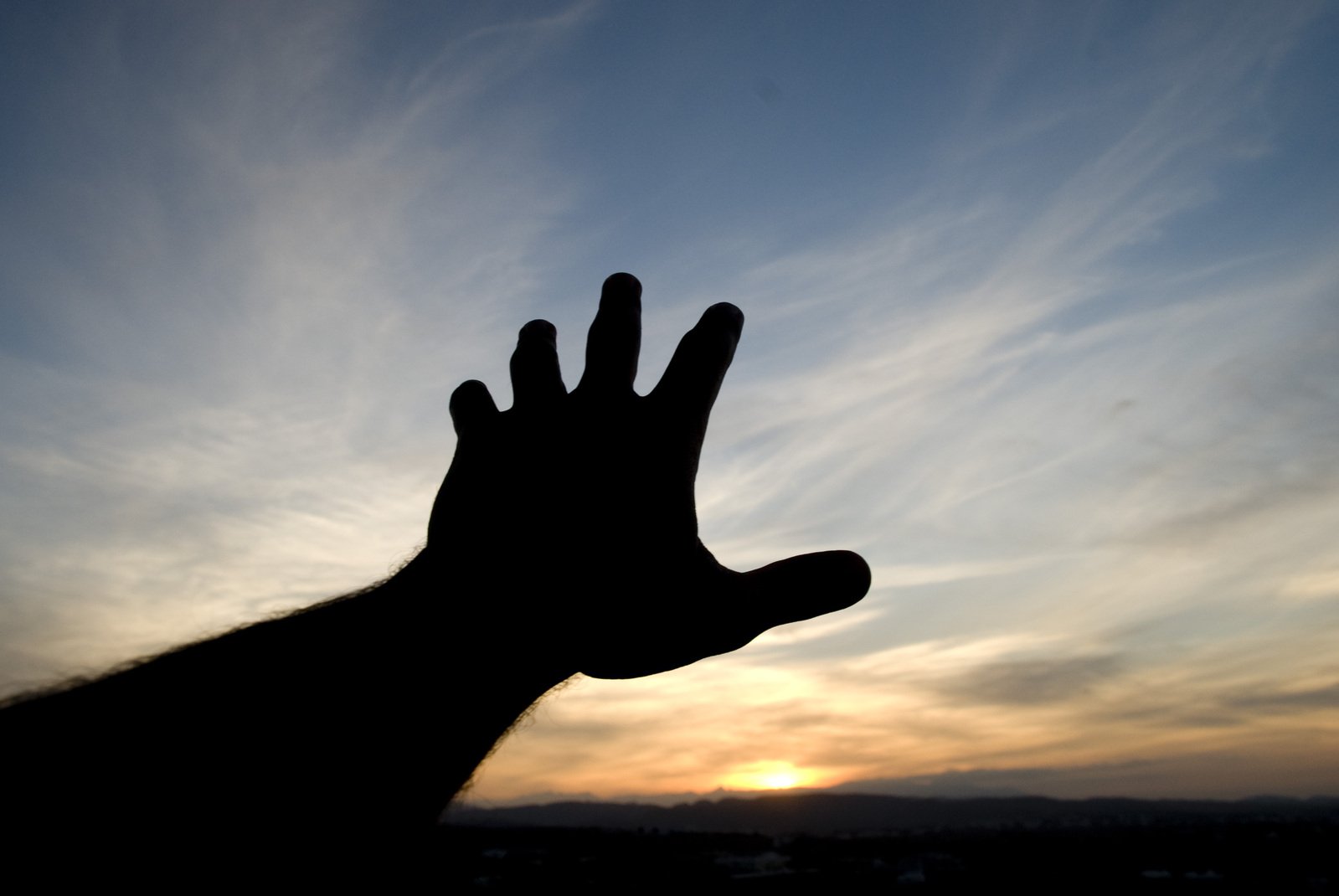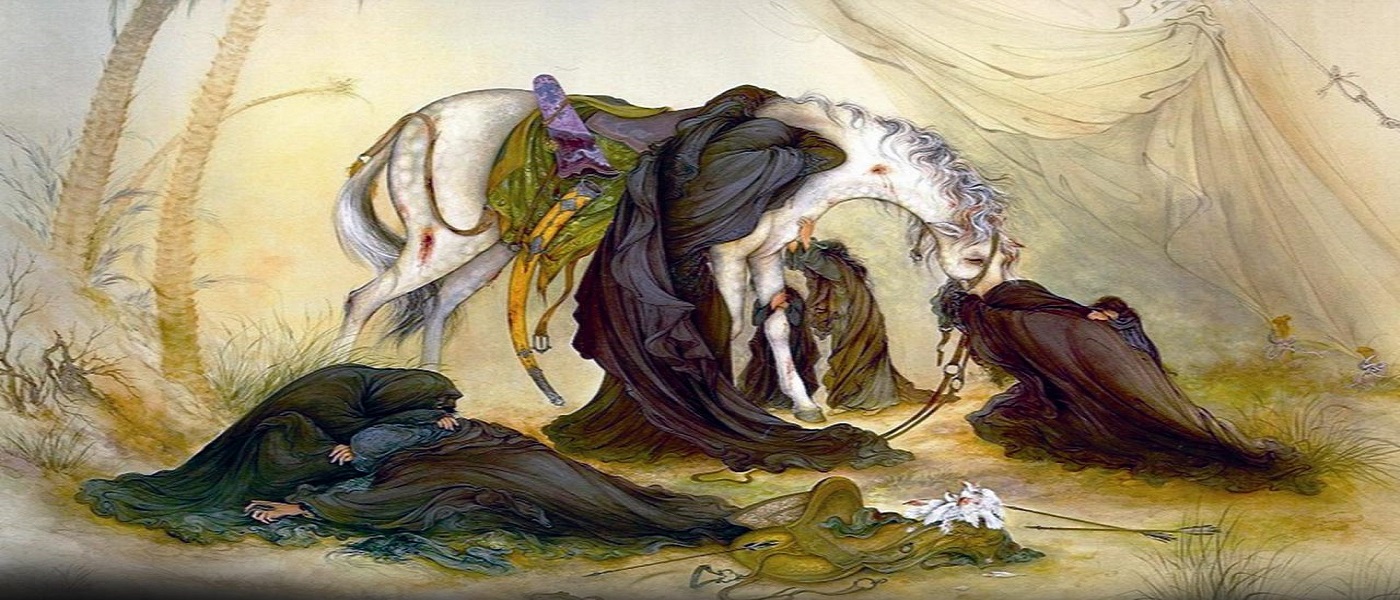

A Seed of Hope and a successful life
What is “hope” and how important it is in our lives? Why do we need hope? How can we cultivate moments of hope in our lives and honour our hope in small ways even through hard times? In other words, How hope makes us successful? And what is the importance of hope for a believer?
A seed of hope is the beginning of every good thing in our livesHope gives birth to ?! life. It always believes for the best, even in the face of the worst circumstances.
For believers in Allah, hope is much more than a wish or a positive outlook; it is based on the promises of Allah found in His Word. They are promises to move on our behalf.
How can we hope in this world full of problems?
We can have hope in life no matter what surrounds us because we serve a mighty Allah who cares about us as knows us by name, and understands the desires of our hearts. “He knows whatever there is in the heavens and the earth, and He knows whatever you hide and whatever you disclose, and Allah knows best what is in the hearts”.[1] He who had known us before we were even formed in our mother’s womb. “Indeed the knowledge of the Hour (Resurrection) is with Allah. He sends down the rain, and He knows what is in the wombs. No soul knows what it will earn tomorrow, and no soul knows in what land it will die. Indeed Allah is The All-knowing, The All-aware”.[2]

Perhaps you are facing setbacks with your job or relationships. Maybe you are struggling financially or the pressures of life is just overwhelming you. If it applies to you, there is still hope! Allah is for you, not against you. His resources are endless As He says, “There is not a thing but that its sources are with Us, and We do not send it down except in a known measure”. [3] His power and love know no boundaries. Allah is on your side. Do not let the enemy, Satan, your thoughts, or anyone else tell you anything different. Keep hope alive and never give up! “Satan frightens you of poverty and prompts you to [commit] indecent acts. But Allah promises you His forgiveness and grace, and Allah is The All-bounteous, The All-knowing”. [4] Allah is a God of more than enough as He does not have any lack. He always has a solution and is ready to speak to you, encourage you and for some, to rescue you. Let me ask you where your hope is today. Is it in people; in your capabilities; in your occupation? Be encouraged and build your hope on nothing less than Allah himself. And put your trust in Him; He suffices as trustee “and He is an excellent trustee”. [5] He is your solid rock in which all other ground is sinking sand.
Hope today, hope now! Know that whoever hopes in Allah and trusts in Him, will never be/get disappointed. This is the right path and this is the way of salvation. Always remember this verse of the Holy Quran, “Say, nothing will befall us except what Allah has ordained for us. He is our master, and in Allah let all the faithful put their trust”.[6]
references
- (The Qur’an; 64:4)
- (The Qur’an; 31:34)
- (The Qur’an; 31:34)
- (The Qur’an; 31:34)
- (The Qur’an; 31:34)
- (The Qur’an; 9:51)
Share This Article

The Role of Women in the Event of Karbala
Going through the history of the world, one can realize that women have always played significant roles in society. When men and women accompany each other, and each party plays its own role to the fullest, miracles start to appear. And as we are going to discuss the role of women, it is good to recollect that the patience of a woman in nurturing a child is no different from her patience and tolerance in nurturing and training her husband and her whole family. That is why when a mother is taken away from a family, putting it again together as a healthy family is a hard job.
When Allah wants to give examples of good and bad role models for non-believers and believers in the Quran, he mentions four women:
“Allah cites an example of the faithless: the wife of Noah and the wife of Lot. They were under two of our righteous servants, yet they betrayed them. So they did not avail them in any way against Allah … Allah cites an example of the faithful: the wife of Pharaoh, when she said, ‘My Lord! Build me a home near You in paradise, and deliver me from Pharaoh and his conduct, and deliver me from the wrongdoing lot.’ And Mary, daughter of Imran, who guarded the chastity of her womb, so We breathed into it of Our spirit. She confirmed the words of her Lord and His Books, and she was one of the obedient.” (66: 10-12) [i]
Now that we have discussed the central role of women in many significant events, we would like to study the role of women in the important event of Karbala, in about 1400 years ago.
Different Aspects of a Self-built Woman’s Character
When we discuss the role of women as mothers, sisters, wives, or daughters, we never mean to neglect the vital status of women as individuals. Of course, a woman should have a strong, self-built character as an individual to be able to influence and train others and manage different situations.
The fact that faithful women's names who were present while, before and after the event of Karbala have remained in history is due to their characters. They were strong to some point before the day of Ashura and represented their strength and beauty within the hard situations of the day of Ashura and after that.
To be able to represent such an astonishing character, a woman needs to have developed her character in the following dimensions: individual, spiritual, social, political and cultural, while having a high status of knowledge and wisdom at the same time. This type of woman is of the kind who can observe the event of Karbala and see it a blessing from Allah. The famous few words of Lady Zainab (AS) after witnessing all the cruelty and brutality of the enemies of her brother shows it very well: “I did not see anything but beauty.” [1]
Can all Women Become So Special as the Ones in the Event of Karbala?
When women read about the character of those women who were present in the day Ashura with Imam Hussein (AS) and his companions or women whose names have remained in history for their well-being, they may think that those women were extraordinary and not every woman can be like them. But reading the history and commemorating the events of Karbala is to show us that we can all become astonishing characters, only if we follow the orders of Allah, the Prophet (PBUH & HP) and his household.
An example of those ordinary women whose name has remained in history is Habib Ib Mazahir’s wife. What made her special was the right choice she made based on the teachings of her religion and obeying the commands of her Imam; Imam Hussein (AS). Thus, when her husband tested her by saying that he was not going to join the army of Imam Hussein (AS) as he was an old man, she blamed him and reminded him of the status of the Imam based on what she had learned from the Quran and narrations. [2]
Therefore, all women who read and obey the rulings and advice of the Quran can reach the highest levels of faith and spirituality.
The Role of Mothers in the Event of Karbala
The vital role of mothers in the event of Karbala is to be studied many years before the incident occurred. That is when the soldiers of Imam Hussein (AS) were just born and were being nurtured and trained by their mothers to become great servants of Allah and to recognize the truth from the wrong in a critical situation.
The first one of them was Lady Fatimah (AS), Prophet Muhammad’s (PBUH&HP) daughter, who brought up her children in a way to be the greatest leaders of all times.
The second Fatimah that should be mentioned here is Fatimah bint Hizam. She was a knowledgeable and pious woman and a few years after the martyrdom of Lady Fatimah (AS) Imam Ali (AS) married her. She gave birth to four sons, and therefore she was called Ummul-Banin (Mother of Sons). His eldest son was Abbas ibn Ali (AS); the commander of Imam Hussein (AS) forces. All her four sons were martyred while defending Imam Hussein (AS); the Imam of their time. [3]
The role of those mothers who were present in Karbala and encouraged their sons to fight and defend their Imam should not be neglected. Lady Zainab and Umm-e Wahab are among the most significant ones.
Also, the behavior of Lady Robab, who lost her six months old baby and never mentioned it before her Imam and husband can be an excellent lesson for all the women in the world.
The Role of Wives in the Event of Karbala
One of the most significant moments when women nag their men is when they feel insecure for any worldly reasons. It is less probable for women to complain to their men when they find them spiritually at risk. In such situations, the faithful woman would find ways of preparing her husband for growth and spiritual improvement where nagging won’t work. But if men put the worldly belongings of a woman at risk, the woman would usually fight against him.
However, in Karbala, Imam Hussein (AS) and his followers gave everything in the way of Allah, including their life. But those specific women who were with them, not only encouraged them to do so, but also supported them and promised to follow their true path after them.
One of these outstanding women was Wahab’s mother; Umm Wahab. Wahab was a Christian and was traveling with his mother and his newlywed. They met Imam Hussein (AS) on the way and were informed of what was going on to the household of the Prophet (PBUH&HP). So Umm Wahab tells him that she will not be satisfied with him until he joins and defends Imam Hussein (AS). Wahab joined Imam’s army and fought until he was martyred. When he was laid in the middle of the battlefield, his mother sat at his body, cleaning blood and dust off his face, where the enemy attacked her, and she was also martyred in the way of Allah. [4]
Such women can be great role models for all women in the world to support their husbands if they find them on the right path or even to guide them to the right path.
The Role of Sisters and Daughters
In the event of Karbala Lady Zainab (AS) was present as a sister and a mother, while for some specific reasons, she was not accompanied by her husband [ii]. Imam Hussein’s (AS) daughters were also present in Karbala.
The leading roles that they played in the event of Karbala were to encourage and support men to defend their leader, to take care of the sick and the wounded ones, to stay together and take care of women and children.
When they were captured and were being taken from city to city, the women were careful not to let children take any charity from people, as charity is forbidden for the household of the Prophet (PBUH&HP). They also kept reporting the true events that went on in Karbala, and before and after that, to increase the awareness of people about the truth. [5]
When they returned home, they narrated the event of Karbala to the next generations, by giving speeches, saying poems, and mentioning the events wherever they could.
Commemorating the aims of Imam Hussein (AS) in confronting the corrupt rulers of his time was a tradition that started by faithful women of his time, and should be continued to help us realize the true path from the wrong path.
Notes:
[i]The above verses show that in the same way that women can help developing the spirituality of the individuals, the family, and society they can also lead them towards decadence and corruption
[ii] Search history for “Why lady Zainab’s husband was not present in Karbala?”
References
- Bihar Al- Anwar, Vol. 45, p. 116
- Daastaan-e Doustan, Mohammad Mohammadi Eshtehardi, M, vol. 5, p. 20
- umm al Banin
- Nafas ul- Mahmoum, Sheikh Abbas Qomi, p. 146
- women in Karbala
- The Quran
Read More

How Has Imam Hussain’s (AS) Uprising Inspired Humankind? Part 2
In the first part of this topic, we tried to describe some of the inspiring aspects of Imam Hussain’s (AS) uprising that can be a model for all human beings. It was mentioned that confronting any oppressive and cruel regime is a duty over every free human being. That was the reason that Imam Hussain (AS) stood up against Yazid’s tyranny. However, taking the leadership should not be the aim and should not be achieved at any price. In fact, whoever seeks real justice, should act justly. Here we review other lessons from Imam Hussain’s (AS) movement.
Imam Hussain (AS) Demonstrated Courage
According to Imam Ali (AS), courage is composed of three virtues which complement each other: self-sacrifice, not surrendering to humiliation and oppression and not seeking fame [1]. All of these virtues were manifested in Imam Hussain’s (AS) movement. He (AS) sacrificed his life for the sake of the divine goal that he had. He (AS) never gave up and did not abandon his aim; even in Karbala where his dearests were under the hardest conditions. And, Imam Hussain (AS) did not seek to reign but was concerned about how Yazid was altering the Islamic teachings and spoiling Prophet Muhammad’s (PBUH&PH) Sunnah.
Moreover, he (AS) was such courageous that he was ready to confront the enemy’s large troops with his few companions. However, he (AS) never sought to start a battle, but he (AS) aimed to reveal the truth and to show the real face of Yazid’s corrupted reign for the sake of Allah Almighty.
Establishing Justice and Preserving Human Dignity
One might ask him\herself that what I would have done if I had been in the same situation as Imam Hussain (AS)? There would have been “nearly safe” options in dealing with Yazid’s tyranny that could prevent a battle and shedding blood.
For instance, he could have been indifferent and accepted Yazid’s allegiance or kept busy with private affairs. In the most courageous case, he could have waited for an opportunity to gather companions in secret to fight back the injustice. But, are any of these reactions honorable? Could a free righteous man or woman live under such circumstances? Surely no. Imam Hussain (AS) stood up for justice and resorting what has been distorted by Yazid’s corrupted governing style. He (AS) chose to be killed on the battlefield instead of living under humiliation. It was for the sake of human dignity that he (AS) sacrificed his valuable life. This is what he (AS) declared on the battlefield: “If you don’t believe in any religion, at least be free-spirited and honest in your actions in this world.”
Perseverance in Achieving Valuable Goals
All the difficulties that Imam Hussain (AS) suffered from were due to worthwhile goals: revealing the truth, establishing justice, and eliminating oppressive regimes. Achieving these aims cost many lives and caused Imam Hussain (AS) and his family considerable hardship. When he was leading his family and companions towards Karbala, he was perfectly aware that there was no way back. However, Imam (AS) never surrendered and was never disappointed.
Humans Are Free to Choose Their Destiny
In Karbala, the situation was so hard such that some of Imam’s (AS) companions decided to leave. They were sure that they wouldn’t leave the battlefield alive. That’s why they gave many reasons to go home; like their family being alone in their absence, owing money to others, etc. Hence, a part of the caravan left. The night before Ashura, Imam (AS) called his companions and described the extreme situation that they would face the next day. He (AS) said that they were free to leave, and they won’t be blamed for this. In other words, in spite of lacking enough soldiers, Imam (AS) did not oblige anyone to stay. He (AS) let them choose, and in such a case, they decided their own destiny.
Now that we have reviewed the significance of Imam Hussain’s (AS) movement, we realize that what happened in Karbala was not a simple battle. This event’s lessons of morality and humanity are not only limited to one place or a specific group of people but reach out to every human being, regardless of their religion, nationality, or time.
References:
- Ibn Shu'ba al-Harrani, “Tuhaf al-'uqul,” p.322
Read More

